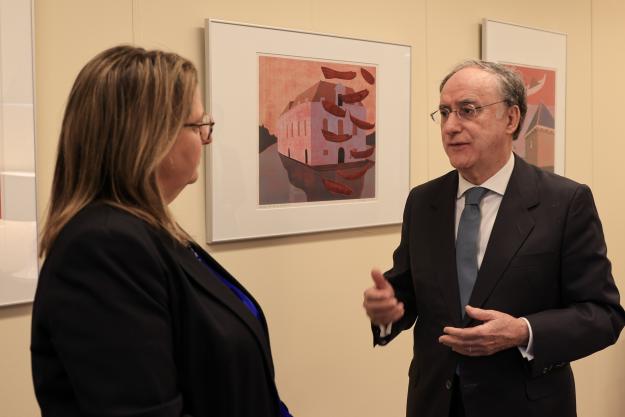The Government of New Zealand has contributed more than €20,000 to the Trust Fund for Syria Missions of the Organisation for the Prohibition of Chemical Weapons (OPCW).
The contribution will support OPCW's ongoing efforts to fully eliminate Syria's Chemical Weapons Programme amid the country's evolving political landscape. It will also aid in investigating allegations of chemical weapons use and identifying perpetrators, in line with the Chemical Weapons Convention (CWC), relevant decisions of the OPCW's policy-making organs and United Nations Security Council resolutions. In particular, the contribution will support the work of the Declaration Assessment Team (DAT), the Fact-Finding Mission (FFM), and the Investigation and Identification Team (IIT).
The voluntary contribution was formalised on 24 January 2025 in a signing ceremony held between the Ambassador, Permanent Representative of New Zealand to the OPCW, H.E. Mrs Susannah Gordon, and the OPCW Director-General, Ambassador Fernando Arias, at the OPCW's Headquarters in The Hague.
"With this contribution, we are showing our continued commitment to upholding the Chemical Weapons Convention. In such challenging times, it is more important than ever that States Parties come together and do our part to support the OPCW in achieving a world free of chemical weapons. In this, you have New Zealand's full and unwavering support," said Ambassador Gordon.

H.E. Mrs Susannah Gordon, Permanent Representative of New Zealand to the OPCW, and Ambassador Fernando Arias, ORCW Director-General, during a ceremony to formalise New Zealand's contribution to the OPCW. The ceremony took place at OPCW Headquarters in The Hague, the Netherlands, on 24 January 2025
The Director-General stated: "I express my sincere appreciation to the Government of New Zealand for its timely and important support to OPCW's work on the Syrian chemical weapons dossier."
He further underlined that: "The evolving political landscape in Syria may provide an opportunity for the OPCW to complete the elimination of Syria's chemical weapons programme, which could not be achieved for more than 11 years due to a dismissive approach by the former Syrian authority."
"To this end, the Secretariat remains committed to its work in Syria and needs continued support from States Parties for additional financial and human resources. Timely contributions-such as New Zealand's generous support today-are crucial to ensure that the Secretariat can carry out its future missions in Syria," Director-General Arias emphasised.
Background
New Zealand has been an active member of the OPCW since the Chemical Weapons Convention entered into force in 1997.
To date, New Zealand has made voluntary contributions totalling EUR 1,242,975 to 11 OPCW trust funds.
The Declaration Assessment Team was established in 2014 to engage the relevant Syrian authorities to resolve the identified gaps, inconsistencies, and discrepancies in the Syrian declaration. The Fact-Finding Mission was set up in the same year in response to persistent allegations of chemical weapon attacks in Syria, with the task to establish facts surrounding allegations of the use of toxic chemicals for hostile purposes. The Investigation and Identification Team began its work in 2019 and is responsible for identifying the perpetrators of the use of chemical weapons in Syria.
As the implementing body for the Chemical Weapons Convention, the OPCW, with its 193 Member States, oversees the global endeavour to permanently eliminate chemical weapons. Since the Convention's entry into force in 1997, it is the most successful disarmament treaty eliminating an entire class of weapons of mass destruction.
In 2023, the OPCW verified that all chemical weapons stockpiles declared by the 193 States Parties to the Chemical Weapons Convention since 1997 - totalling 72,304 metric tonnes of chemical agents - have been irreversibly destroyed under the OPCW's strict verification regime.
For its extensive efforts in eliminating chemical weapons, the OPCW received the 2013 Nobel Peace Prize.






